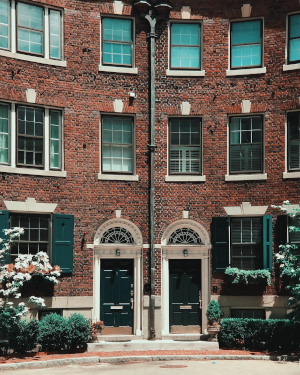Can a Landlord Make You Pay for Plumbing Repairs
Can a Landlord Make You Pay for Plumbing Repairs?
Moving into rental property comes with responsibilities that go beyond paying rent. Some issues involve ensuring that the property is in good condition. Landlords are usually responsible for maintenance and taking care of repairs at their rental property. However, in some situations, they may not be responsible for the financial obligation. If you have just moved into a new apartment or house, it is important to find out what your responsibilities are.
There is a landlord-tenant law that spells out the maintenance obligations for the two parties. Your landlord should make sure that the property meets the accepted habitable standards. The landlord has to provide things like heat and running water. The property must be structurally sound and free from problems such as pest infestation. You need to determine when and if your landlord can make you pay for plumbing repairs.
The Landlords' Legal Obligation
Any time you have a problem with something in your apartment, you should call your landlord or send them a maintenance request. The landlord is expected to fix the problem within a specified time frame. The severity of the issue will determine how fast the issue is addressed. The monthly rent typically covers plumbing maintenance. The landlord is legally obligated to take care of certain plumbing issues that arise. However, there may be cases where you end up paying for the services and you need to understand this.

Check Your Lease for Maintenance Information
You need to refer to your lease to determine whether you are paying for maintenance that is the landlord's responsibility. Your lease should spell out both the landlord's responsibility and yours. Unfortunately, if the lease does not specify what your landlord is required to pay for, you may find yourself stuck with the bill. Distinguish between what is considered emergency maintenance, and issues that are considered minor. Your landlord may not be obligated to pay for your low-pressure shower or a leaky faucet.
You can view these plumbing services, or do some research online if you need more information on which plumbing issues require immediate attention. Act upon your landlord's responses accordingly.
Understanding Tenant Responsibilities
As a tenant, you need to understand that you have maintenance responsibilities. You are responsible for ensuring that you keep all appliances and plumbing fixtures clean and in good condition. This will help to ensure that everything is working effectively as it should. Read and understand the lease agreement. Note where you may have agreed to certain obligations relating to additional maintenance. If damage occurs because you neglected to carry out some tasks, you may be responsible for the repairs needed.
Failure to Perform Required Duties
In most cases, maintenance of the minor issues is the tenants' responsibility. There are issues that any homeowner would be expected to take care of. These are issues that could be avoided due to simply cleaning out the gutters or replacing certain worn-out fixtures. Failure to perform certain tasks or duties could lead to damages that are considered the tenant's responsibility. Damage caused by an overflowing bathtub is the tenant's responsibility. However, tenants are not responsible for the expected wear and tear that the property undergoes.
Abuse or Deliberate Destruction
Some actions are considered deliberate abuse or destruction. If the plumbing problem occurs because the tenant has been flushing diapers or other items down the toilet, this is considered deliberate abuse. Some items can cause a sewer line to back up, and the tenant is responsible for damages created by blocked sewerage. Remember that as a tenant, you are responsible for the actions of your guests or anyone you allow onto your property. You will be financially responsible for any damage caused by you or your guests.
The best thing about being a tenant is that someone else is responsible for the property's upkeep. This means that while you are expected to keep the apartment in good condition while you are there, the landlord is responsible for dealing with plumbing, heating, and other structural issues. As long as you are living in the apartment, the landlord is responsible for ensuring that the unit is habitable.
While it is true that laws vary from state to state, there are some basic housing rights. Particular emergency-level plumbing maintenance issues are your landlord's responsibility to fix. Find out your local housing laws to learn what is required of your landlord when it comes to maintenance. Always read the lease carefully before you move into a new apartment.